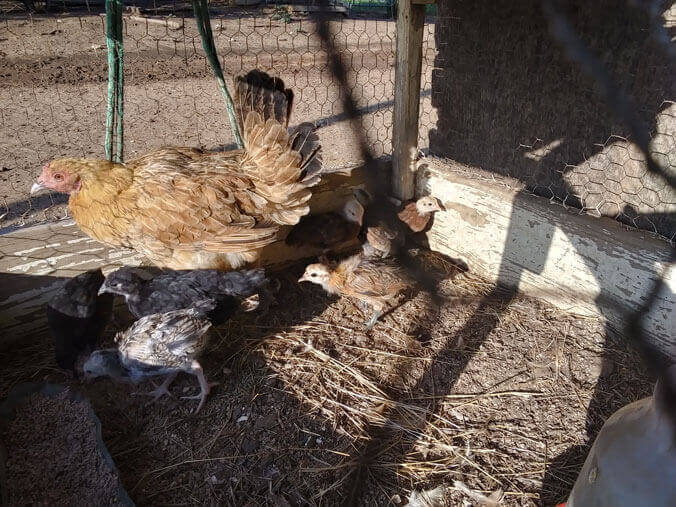Isaiah 53:2 – “For he shall grow up before him as a tender plant, and as a root out of a dry ground: he hath no form nor comeliness: and when we shall see him, there is no beauty that we should desire him.“
Continuing on from Part 2 of the series on desiring Christ, taken from Thomas Manton’s Isaiah 53 commentary.
You can read it here, or listen to the whole exposition here.
The new section below after the recap at the beginning starts here if you want to read it, or you can listen to it in this audio section.
From Thomas Manton:
Recap:
Doct. 4. That Christ is so outwardly mean [low], that the men of the world do not any way desire him, or that carnal men do see nothing in Christ wherefore they should desire him. To his spouse he is all beauty, ‘altogether lovely;’ but to them there was no beauty why they should desire him.
The reasons of the point are these:-
- Because carnal men neglect the study of Christ; their hearts are so taken with the things of sense, and the beauty of the creatures [all things created], that they do not look any further.
- Because they reject Christ; he is not for their turn; nay, he is quite contrary to their ends [purposes]. Carnal men have not all the same ends, but they all agree in this, their ends are carnal.
Use 1. It serves for information, to teach us the difference between God’s people and carnal men.
To God’s people he is all their desire; to carnal persons there is nothing desirable in him.
. . .
Wicked men feel no desires; they have some slight wishes, carnal and weak velleities [the lowest degrees of desire], but they have no serious desires, nor true volitions [will, or power to will]. Balaam may wish to die the death of the righteous, Num. 23:10. So they may desire Christ out of some general conceit [conception] of happiness; but they do not desire Christ for holiness.
. . .
But that you may not deceive yourselves in this matter, I will give you a few notes. I will not speak anything of the cause of desires. A high value and price set upon Christ, and a seeing rich beauties in him, of that I shall speak in the next verse. I shall only treat now of the effects of this desire.
If it be earnest and strong after him, it will be manifested by these things.
1. A holy impatiency in the want [lack] of Christ.
2. A holy indignation.
Passions usually serve and accompany one another. If there be a holy desire, there will be a holy anger. And this is at two things:-
[1.] At anything that would rival the affection.
[2.] At what would hinder the enjoyment of the object.
Continuing on:
3. It will cause a holy waiting.
Those that desired the coming of the Messiah, waited for him; as Simeon: Luke 2:25, ‘Waiting for the consolation of Israel: Earnest expectation is the formal and most proper effect of the desire of anything.
Look, as it is said of Sisera’s mother, Judges 5:28, ‘She looked out at a window and cried through the lattice, Why is his chariot so long in coming?’ She would fain [be glad to] meet with it as far as she could with her eyes. And so it is said, Rom. 8:19, ‘The earnest expectation of the creature waiteth for the manifestation of the sons of God.’ Apekdecetai [Greek], the creature lifts up the head — would fain see the general restoration of all things in the world; so the soul lifts up the heart, it would fain [be glad to] see Christ coming to it in this or that ordinance, — with a great deal of longing they expect when he will draw their hearts to himself: Ps. 130:6, ‘My soul waiteth for thee more than they that watch for the morning; yea, more than they that watch for the morning.’
4. Another effect is a powerful command over the whole man.
Desires are the most vigorous faculties, they carry the whole soul along with them. They will take up your thoughts, time, care, endeavours, speeches. Look and you shall observe that a man is so affected in earthly things, and, therefore, why not so in heavenly? It is a bad sign when there cannot be found the same proportion and care for heavenly things as men have for the things of the world.
Let us see these things a little severally.
[1] It will take up your thoughts.
Our thoughts will be conversant about what we desire. We love to feed upon the sweet of those things that we long for, — to enjoy them in our meditations before we really and actually enjoy them. Thoughts are the pulses of the heart, you may know by them how it beats.
When desires are at a high pitch, we shall not be able to put off those pleasing imaginations that concern the object of these desires. Nay, they will haunt the mind in the time of our usual repose and rest: Isa. 26:9, ‘With my soul have I desired thee in the night; yea, with my spirit within me will I seek thee early.’ Night and morning, all their mind was upon this, how they should get God.
[2] It will challenge more of your time and care.
When men will make bold with God rather than their own occasions, it is a sign they are but coldly affected to him. If your desires be to Christ, your care and time will be more laid out upon him; you will rather borrow from yourselves, your own pleasures and business, than borrow from God.
I confess a man that is in a particular calling, and is to provide for a wife and family, must necessarily spend more time in the world than he can in religion; but when he begrudges all time to God [ie. is envious of time to God], or thinks all lost that is spent in duty, it is a sign there is little desire after Christ.
When we are where we would be [desire to be], time goes too fast for us; therefore, try how it is with you in point of religion. Is all too much that is spent in duty? If the heart goes out that way, all will be too little. As men’s desires are so their time goes away. Job 21:13, It is said of the wicked, ‘They spend their days in wealth.’ Voluptuous [given to the enjoyments of luxury and pleasure] men do so, — so worldly men, they spend their time in business and worldly cares, and are cumbered about much serving. You may try your bent by that, how you spend your days.
[3.] It will put you upon endeavours.
Those are true desires that end in action. Slight wishes after Christ never put us upon a pursuit of him. If a man be earnest in a thing, he will try all ways he can to compass it; it shall be his earnest business.
Men that are slight would fain [be glad to] have Christ, but they will not seek him — Vellent, sed nolunt [Latin: They want to, but they don’t want to]: Prov. 21:25, ‘The desire of the slothful killeth him, for his hands refuse to labour.’ The slothful are most full of desires; they would fain have things, but they do not labour after them.
Now, it is otherwise with the children of God. The spouse, that was sick for want [lack] of Christ, sought him through the streets, though it cost her many a wandering, Cant. 5:7. God hath fenced up every excellent thing with difficulty, to see if we think it worth our endeavours.
May God grant we desire to meet with Christ Jesus as much as possible in this life in times of worship, prayer and in His word and ordinances, and then eternally with Him in the next life; and may He grant this desire for Him to affect all the areas of our lives, including our heart, thoughts, words and actions!
Go on to Part 4!
— David





